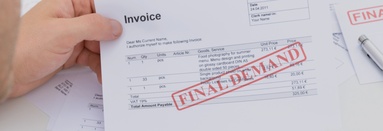B2B collections play a crucial role in maintaining the financial health of businesses of all shapes, sizes, and descriptions. Efficiently handling accounts receivable and promptly recovering debts are essential components of a well-functioning financial system. The objective of this section is to delve into the importance of B2B collections and its overall influence on financial management.
Effective Methods for Enhancing B2B Collections
Maintaining a steady cash flow and mitigating the risk of unpaid debts are of utmost importance for businesses. To attain this, it is imperative that businesses execute effective methodologies to enhance their management of accounts receivable and secure timely payments from their clients.
- Establishing transparent payment terms is a crucial factor in optimizing the efficiency of B2B collections. By explicitly defining the anticipated payment expectations and deadlines from the outset of a business collaboration, potential confusion or disagreements can be minimized. This involves clearly defining due dates, establishing penalties for overdue payments, and providing comprehensive details on any other relevant conditions.
- To guarantee successful B2B collections, it is essential to adopt a diverse set of communication channels to maintain a strong connection with clients. By consistently following up through phone calls, emails, and in-person meetings, ongoing communication can be fostered, allowing for the prompt resolution of any concerns or issues that may arise. Additionally, leveraging technology, such as automated reminders or online portals, can streamline the collection process and provide convenience for all parties involved.
- Furthermore, it is highly recommended that businesses take into consideration the diverse demands of their clients by offering flexible payment alternatives. This could involve providing discounts for timely payments or establishing installment plans for larger invoices.

How Technology can Enhance B2B Collections
Technology has become an essential component in the fast-paced and ever-changing business world, particularly in improving the efficiency of B2B collections. The integration of sophisticated software solutions for B2B collections has revolutionized the way companies handle their collections activities. This automation and streamlining have given businesses the ability to attain unparalleled levels of efficiency and effectiveness in their collection processes.

Automated invoicing systems are a crucial component of this technology. They enable businesses to generate and dispatch invoices with ease, reducing the need for time-consuming manual invoicing processes. By integrating seamlessly with accounting software, these systems ensure accurate and up-to-date financial information, eliminating errors and inconsistencies that could hinder the collections process. This integration also enables real-time data synchronization between collection efforts and financial records, giving businesses a complete picture of their outstanding invoices, payment statuses, and overall cash flow position.
By embracing technology in their B2B collections procedures, companies can significantly improve their operational efficiency, streamline cash flow management, and enhance overall performance. These solutions provide automated functionalities that not only save valuable time but also minimize the occurrence of human errors, thereby improving accuracy in financial transactions.
Nurturing Customer Relationships: Key Strategies for a Positive Collections Experience
A crucial piece of advice for effectively managing customer relationships during collections is to place a strong emphasis on fostering clear and transparent communication. By maintaining open lines of communication, customers will feel acknowledged and comprehended, which in turn minimizes their frustration levels and enhances their cooperation towards finding a resolution. Consistently updating them on payment options, promptly addressing concerns, and engaging in negotiations for favorable terms can greatly contribute to cultivating trust between both parties.

An l important suggestion to keep in mind is to handle debt recovery with empathy and understanding. It is essential to acknowledge that customers might be experiencing financial hardships or unforeseen circumstances, as this approach fosters a more compassionate environment. Demonstrating a commitment to finding mutually beneficial solutions can be achieved by providing flexible payment plans or tailored alternative options based on their unique situation.
Moreover, transparency plays avital role in upholding favorable customer relationships during the collections process. It is essential to clearly articulate the steps involved in collections, which includes providing details about any associated fees or repercussions. This approach assists in effectively managing customer expectations and avoids potential misunderstandings. By openly sharing company policies and procedures, trust can be fostered by demonstrating equitable treatment towards customers.
It is essential to maintain exceptional customer service throughout the collections process. To achieve this, it isnecessary to provide comprehensive training to the staff responsible for collections, focusing on effective communication skills, active listening techniques, and problem-solving abilities. Equipping them with these key tools enables them to handle difficult situations in a professional manner. By treating customers with respect and empathy, tense interactions can be diffused while upholding a strong dedication to resolving outstanding debts amicably.
By incorporating these tactics to uphold favorable customer relations during the collections process, organizations can enhance their probability of successfully resolving outstanding debts. Additionally, they can foster enduring loyalty from customers who appreciate the fair treatment they receive throughout the entire procedure.
Unveiling the Future of B2B Collections: Key Trends and Innovations in the Debt Recovery Industry
The B2B collections sector is experiencing notable changes due to emerging trends and innovative technologies. One noteworthy trend is the incorporation of AI-powered tools in debt recovery procedures. These cutting-edge tools utilize artificial intelligence algorithms to enhance the efficiency and automation of different elements within the collections process.

The utilization of AI-driven debt collection tools has demonstrated significant effectiveness in improving efficiency and precision. These tools possess the capability to analyze extensive amounts of data, identify patterns, and forecast debtor behavior. As a result, collection agencies are empowered to make well-informed decisions and proactively undertake measures for debt recovery.
In addition, the emergence of digital payment solutions has brought about a significant transformation in the manner in which B2B collections are handled. Through secure online payment platforms, businesses now have the capability to provide their clients with convenient means to promptly settle any outstanding debts. As a result, not only does this streamline the collections process, but it also enhances customer satisfaction levels.
As we consider the future of B2B collections, itis apparent that a number of emerging trends and innovations will have a lasting impact on the industry. The incorporation of AI-driven debt collection tools and digital payment solutions will enhance efficiency, accuracy, and customer focus in debt recovery procedures.
Conclusion
For businesses aiming to attain stability and sustainable growth, it is crucial to prioritize B2B collections as a key component of their overall financial strategy. By skillfully implementing proven techniques and engaging in strategic planning, companies can effectively address challenges and maximize their potential for success in today's highly competitive business environment.









